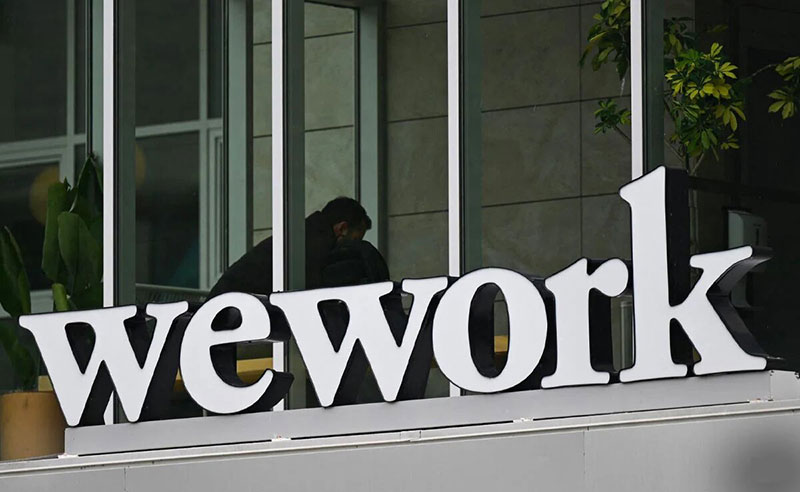why wework filed bankruptcy :- WeWork, once esteemed at $47 billion, petitions for financial protection On 6th November Monday, the office-sharing company WeWork went to federal court to file for Chapter 11 bankruptcy protection.

The company attempted to go public five years ago but was unsuccessful. It was valued at $47 billion in 2019 in a SoftBank round led by Masayoshi Son.
In an August regulatory filing, it stated that bankruptcy might be a concern.
Previous high-flying startup WeWork Inc. sought financial protection posting almost $19 billion of obligations, a new low for the cooperating organization that attempted to recuperate from the pandemic.
In a statement, the company with its headquarters in New York stated that it had reached a restructuring agreement with creditors who represented roughly 92% of its secured notes and would streamline its rental portfolio of office space.
The Nov. 6 Part 11 documenting in New Jersey recorded resources of $15 billion.
WeWork’s breakdown into liquidation is the zenith of a years-in length adventure for the organization, which was once the greatest office occupant in Manhattan. Its abrupt ascent and steep fall have enraptured Money Road and Silicon Valley the same.
2019 may have marked the beginning of the company’s demise. Very quickly, the organization went from arranging an Initial public offering to laying off thousands and obtaining an extravagant bailout.
Changes caused by the pandemic
Other companies that share office space have also struggled as a result of the pandemic’s disruption of working practices. In 2021 and 2020, respectively, subsidiaries of IWG Plc and Knotel Inc. filed for bankruptcy.
While WeWork arrived at a broad obligation rebuilding bargain in mid 2023, it immediately fell into inconvenience once more. In August, it expressed that there was “significant uncertainty” about its capacity to work. It announced weeks later that it would renegotiate nearly all of its leases and withdraw from locations that were “underperforming.”
Chapter 11 is in many cases the main choice for fumbling organizations with expensive leases, as U.S. regulation empowers wiped out firms to shed bulky agreements that are difficult to drop in any case.
WeWork’s land impression spread across 777 areas in 39 nations as of June 30, with inhabitance almost 2019 levels. However, the endeavor stays unrewarding.
Reject leases
“WeWork is mentioning the capacity to dismiss the leases of specific areas, which are to a great extent non-functional and all impacted individuals have gotten timely notification,” it said in the explanation.
WeWork said it expects to document acknowledgment procedures in Canada, however its areas somewhere else are not piece of the liquidation cycle. Franchisees all over the planet are additionally not impacted, and it said it would keep adjusting existing individuals, merchants, accomplices, and different partners as a component of normal business.
WeWork was never a typical company; for the majority of its existence, it was run with the stated goal of “elevating the world’s consciousness.” The otherworldly ethos that organizer Adam Neumann and his better half, chief and prime supporter Rebekah Neumann, encouraged in some cases made the endeavor seem to be a religion than a startup.
Two years after its initial planned IPO, the company eventually went public in 2021 through a combination with a special purpose acquisition company.
However, that did not stop WeWork from losing money. The business signed an out-of-court restructuring in March, making a final attempt at a turnaround that reduced debt by approximately $1.5 billion and extended other maturities.
FAQ:
Does WeWork still exist?
Yes, WeWork is still a business. And it will continue to be, even after filing for Chapter 11 bankruptcy. According to the BBC, WeWork, based in New York City, had over 700 locations open across 39 countries.
WeWork still profitable?
The office-sharing firm, which went public in 2021, said for the “first time in WeWork’s history”, the company achieved an adjusted EBITDA (earnings before interest, taxes, depreciation, and amortization) profitability for December 2022. Shares of WeWork rose as much as 4% pre-market.
Final Talk:
Previous high-flying startup WeWork Inc. sought financial protection posting almost $19 billion of obligations, a new low for the cooperating organization that attempted to recuperate from the pandemic







